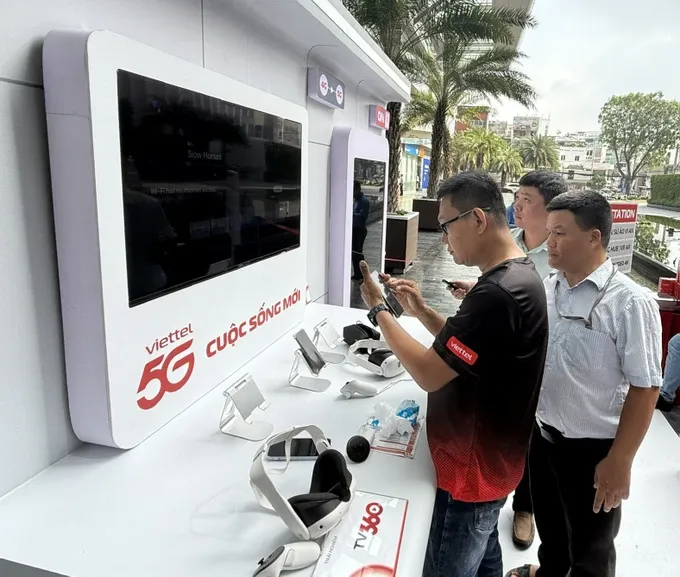
Currently, only Viettel has commercially launched 5G services commercially, offering various prepaid (5G135, 5G150, 5G160) and postpaid (N200, N250, N300) plans. There is now a surge in sign-ups with choices equal to or higher than their current 4G plans.
Hoang Dat from District 3 of HCMC shared his experience with Viettel's 5G package priced at VND135,000 monthly (US$5.33): “Despite a VND40,000 ($1.58) premium over my previous 4G plan, I now enjoy 3-4 times the data allowance. The benefits of 5G extend beyond enhanced speeds to include unrestricted data usage without the previous constraints.”
However, several users have reported inconsistencies in 5G signal strength, with speeds sometimes lagging behind 4G. This is attributed to the higher frequency band used by 5G (2.6GHz compared to 4G's 1.8GHz), which results in smaller coverage areas compared to 4G by 15-20 percent. Given the nascent deployment stage, signal stability remains suboptimal, warranting careful consideration when choosing between 5G and 4G services.
Additionally, some users with informally imported 5G smartphones have found their devices incompatible with Viettel's network.
Viettel currently operates over 6,500 5G-base stations across 63 provinces and cities nationwide. HCMC and Hanoi, being strategic metropolitan areas, host the highest concentration of 5G stations, with the former alone featuring over 1,200 stations.
Deputy General Director Nguyen Thi Tam in charge of Network Planning at Viettel Network Corporation notes that 4G networks are reaching capacity limits, particularly in densely populated areas like Hanoi, HCMC, Binh Duong Province, and Dong Nai Province, necessitating gradual transition to 5G.
VinaPhone and MobiFone have entered the 5G development race, albeit with modest infrastructure deployment. VinaPhone has implemented several hundred stations, while MobiFone remains uncertain due to infrastructure sharing arrangements with VinaPhone. VinaPhone indicates its focus on developing 5G in high-demand areas. Evidently, additional infrastructure investment is required to achieve stable network performance meeting user expectations.
5G networks were initially anticipated to effectively serve smart factories and high-tech industrial zones. Currently, only the Pegatron smart factory in Hai Phong City has implemented 5G technology for management and operations.
Viettel Enterprise Solutions Corporation successfully tested a 5G Private Mobile Network (5G PMN) for Pegatron in July 2023. The facility integrates 5G and artificial intelligence for circuit board defect detection during production. Pegatron reports that 5G implementation has reduced consumable costs by 50 percent, training expenses by 30 percent, and improved product quality by 50 percent.
Viettel has expressed readiness to provide 5G services for projects and enterprises requiring them. “However, Viettel currently lacks specific service packages for this model and has received no formal inquiries,” as said by its representative.
Recently, social media platforms have been inundated with unauthorized promotions for 5G packages supposedly from VinaPhone and MobiFone. These claims are fraudulent, as neither carrier has officially commercialized 5G services. Consumers are advised to exercise caution to avoid financial losses from fraudulent subscriptions.
























